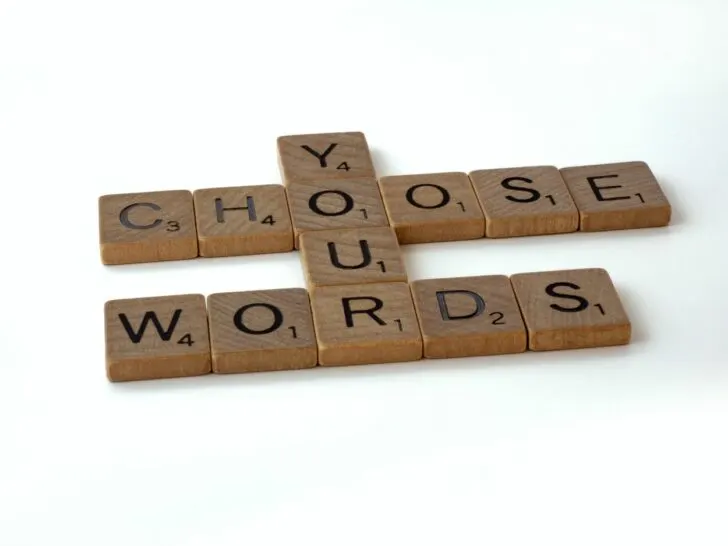English grammar can be very complex sometimes.
The phrases “where we were” and “where were we” look almost identical but they use totally different contexts and convey completely different meanings.
Both are correct and used as interrogative (question) clauses, one direct and one indirect.
Take a look at the examples
- Direct: Where were we yesterday?
- Indirect: I wonder where we were yesterday.
For direct questions, we invert the subject and verb.
Learn about the difference between “where we were” and “where were we,” including how to use these words correctly in a sentence. Let’s define “where” vs. “were” first.
How do we define the word “Where”?
“Where” is used as an adverb or as subordinating conjunction that links dependent and independent clauses.
It comes as an adverb after a situation or place.
Where is pronounced to rhyme with hair, bear, or there?
“Were”: The Definition
“Were” is a verb used for be.
It can be used as:
- second-person singular past― “You were on the wrong side”.
- plural past― “They were adults”
- past subjunctive ― “If I were in good shape, I would have won the race.”
“Were” acts similar to was in the past indicative. Such as “Kids, were at home.“
Were also used as an auxiliary verb like “Students were searching for books at the library.”
Were is pronounced to rhyme with fur, hair, and stir.
How do you use “Where” in sentences?

Where used in a sentence to show at, in, to which.
For example, have a look at the following sentence.
- She remained where she was.
- He studied in Egypt, where he became a master of the Arabic language.
- The result was sloping tiled floors where an errant step up would meet three steps down.
- To which address is the package going? Where is she sending it?
Where can also be used in a sentence as subordinating conjunction ( word or phrase that links a dependent clause to an independent clause) such as
“We performed an experiment where we measured the mass of the new formula.” here, the meaning of where comes as in which.
We can also use Whereas conjunction that translates as “in the place that,” or “in situations that,” as with these sentences:
For example “We hid our boxes where no other pirates could find them.”
Where we were can also function as a noun (nominal relative clause) or serve as an adjective(defining relative clause).
Nominal relative: Where we were is none of your business.
Defining relative: The place where we were is none of your business.
How do you use “Were” in sentences?
The word “were” used in its three different verb forms, let’s look at how to use “were” in a sentence with all three verbs.
Were used for second-person singular past tense pronoun you, or when referring to another person (only one) by name. Here are simple conversations using the past tense of the verb were:
You: “Kate, were you at the hospital yesterday?
Kate: Yes, I have a checkup scheduled with my doctor. Why? Were you there too?
You: I was behind you. Were you aware I was also there?
“Were” is also used for the plural past tense of to be. This plural form can be used for all plural nouns, such as we and they.
You: “We were at the park yesterday at this time.
Kate: “My parents were wondering where I was.“
You: “The children were playing and enjoying themselves.”
Were also used for the past subjunctive. The past subjunctive tense is used for any unreal or hypothetical event in either past, present, or future. If it is not happening at all, use the past subjunctive tense:
Kate: “If she were truly sorry or even not sure she was right, she might apologize, but in this case, she’d be lying,”
You: “I always feel a little uneasy when I’m with Marie Strickland, though not uncomfortable enough to wish she weren’t here,”
Here are some more examples that can give you a clear idea:
- His mother talked to him as though he were a child.
- He took over the meeting as if he were the boss.
- If I were in better shape, I would run in the race.
Is it correct to say “Where were we“?
“Where were we” is actually a complete sentence with a proper subject, verb inverted as question format.
For example, Where were we at six o ‘clock yesterday.
On the flip side, where we were looks complete, it isn’t a full sentence but a dependent clause. It will only make sense after coming up with a sentence containing an independent clause( a complete sentence).
What does “Where were we” mean?
“Where we were” is an adverbial clause used in a statement about a past event.
Have a look at this example:
We didn’t know where we were. The city was totally unfamiliar, and the streets weren’t marked.
What does “Where we were” mean?
“Where were we“ is a question. You would use this about some past event to ask for clarification.
Have a look at this example:
Where were we when we saw the Roman temple? Was that in Córdoba?
Another major difference is that “Where were we” includes the time, and “where we were” does not.
Where we were” alludes to a place in the past, or could be an action in the perfect tense, such as in
“They did not know where we were heading yesterday.”
It could also be a clause or phrase within a question.
“Do you know where we were when I proposed a toast?”
In English, “Who we were,” “What we were,” “Where we were,” “When we were, “Why we were,” and “How we were” are typically statements but are also used in questions like the example above.
On the other hand, “who were we,” “what were we,” “when were we,” “where were we,” “why were we,” and” how were we?” are almost always questions.
When To Use “Where” or “Were”?

Where is an adverb, or sometimes used as a subordinating conjunction, and were always a verb, so it is easier to understand when to use which?
Were used in sentences when we need a verb or a helping verb:
- We were best friends.
- Kids were playing in the park.
- You were experimenting with the new gadget.
- You and I were fighting over it.
- Were I able to go back in time, I would return to childhood.
- If I were you, I would study for that test.
We use where for location, as with at, in, or to which:
- Where would you like us to stay?
- Where did you put my purse?
- Kashmir is a land where climate varies from alpine on the eastern edge to subtropical in the southwest.
Watch the video below to learn how to pronounce where and were
What’s the difference between was, were, and we’re?
Was is used for past tense for first-person singular(I) and third-person singular. It is a past indication when talking about known facts and reality.
“Were” is used to talk about something happening now or in the future; it can be defined simply as a plural past-tense form of the verb “are.”
While the “we’re” is just a contraction for we are. it is used as a short form of the first-person plural pronoun “we” and the verb ” are.”
You can say we are going to the park. Or you can also write we’re going to the park.
Refer to this table to see the summarize difference between was, were, and we’re
| Word | Use |
| Was | First and third-person, singular past of be. |
| Were | The verb of second-person singular past, plural past, and past subjunctive of be. |
| We’re | Contraction of pronoun: we are. |
Wrapping up: The Difference
“Were” and “Where” are two different words with different meanings. The spelling, context, and meaning are the differences between were and where.
“Were” is always a verb; “where “is an adverb and acts as a part-time subordinating conjunction.
Other Articles
- Internal Resistance, EMF and Electric Current – Solved Practice Problems
- Spear and a Lance-What is the difference?
- 21 years old VS. 21-year-old- (All you need to know)
- Difference between a twig and a branch on a tree?
- Can “How are you holding up?” be used in the same way as “How are you doing?” Or is there any difference in its connotation?

